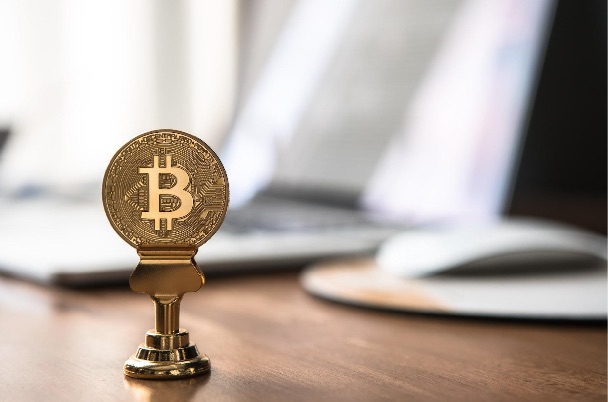Also Interesting
Guide For Finding Best Bitcoin Casinos

Slots, baccarat, roulette, poker, and a plethora of other games are just some of the options available to gamers at online casinos. Professional gamers and newbies alike understand how important it is to choose a trustworthy online casino and what features to prioritise.
Internet casinos have made it possible for gamblers to play from anywhere, at any time. These online operators are perfect for anybody who wants to increase their income via gambling since they are exciting, flexible, and easy to access (from anywhere in the world, in fact). Additionally, at some of these gambling platforms, you can now make transactions in Bitcoin or another crypto, making the money transfers more secure and faster than ever.
It’s important to play at reputable online casinos that live up to your high standards. Here are a few things to bear in mind when you choose your next online bitcoin casino to play at.
1. Check out the banking section
If you’re interested in the world of Bitcoin betting, you should always double-check whether the casino actually accepts this payment method. To be frank, Bitcoin is the most popular cryptocurrency, which means that most, if not all, crypto casinos accept it. However, just to be safe, have a little peek at the banking section.
2. Make sure that the casino accepts players from your country
First, you should make sure that gamers from your country are really accepted at the casino. Online gambling is illegal in some countries. However, it is possible that certain casinos are exempt from this and that some governments do not have the power to prevent casinos from operating from locations like Curaçao, which has lenient gambling legislation.
If you are a resident of a nation that does not permit any or all online casinos to operate inside its borders, the casino may nonetheless let you join up and play. However, there is still a chance that withdrawing your prize money may not go well.
It is recommended that you contact the online casino’s customer care to find out whether they accept players from your country or to read casino reviews that are tailored to gamers from your country. Assuming the answer is affirmative, you may begin playing without worrying about breaking any laws.
3. Make sure the licence is legit
The presence of a valid gambling licence is a key indicator of a reputable online casino. If real-money gambling is available, the site must have the appropriate licence. It doesn’t matter that the casino operates with crypto, which is safer than the traditional payment methods. The casino still has to be held accountable for the safety of its customers.
You may find comprehensive and frank evaluations of many online gaming companies on websites specializing in online casino reviews. There, you may check the casino’s licensing status and the validity of that licence. Keep in mind – not all gambling licences are created equal.
4. Bonuses can be misleading
Check out the promotions or bonus page of the bitcoin casino that interests you. Though you may be able to double or even triple your initial deposit, always pay close attention to the fine print below the bonus offer.
It’s important to know how online casino bonuses work in order to pick out the best bonus for you. Every bonus comes with wagering requirements which refer to the number of times you need to play through your bonus, deposit, or the total of both in order to withdraw your winnings. Sometimes the wagering requirements are as high as 60x, making it impossible for a casual player to access their money.
5. Customer service is important
Never underestimate the power of customer service. We recommend you look for a crypto casino with an agent working 24/7. A live chat feature is also a must. There you’ll be able to quickly contact the service if you have any issues with your account or you can’t find your way around the website.
6. Check out the game selection
One of the keys to getting the most out of Bitcoin gambling online is familiarizing yourself with the different games. The game libraries of these modern gambling sites are enormous. In this respect, cryptocurrency casinos are no different from their traditional counterparts.
When deciding on the best gambling establishment, it’s probably best to prioritise the availability of your preferred games. For example, if you prefer playing table games such as roulette or keno, there’s no need to stick to a bitcoin casino that’s solely focused on slots and the other way around.
Also Interesting
Tips to build an income stream through betting

Financial freedom means different things to different people. Some seek to clear debt or reduce working hours. Others aim to build an income stream separate from traditional employment. Betting is often seen as entertainment, but some treat it as a potential method for financial gain.
It is not a simple route. Success in betting depends on skill, patience, and clear risk control. Casual bets and chasing losses are not the same as long-term planning. Play slots and live casino online deals may attract interest, but true gains require a well-developed approach grounded in calculation,
not luck.
Some treat betting as a serious income project. Like investing, it involves monitoring markets, sticking to rules, and managing emotion. These habits shape outcomes more than any single win or loss.
The Role of Strategy and Market Choice
Building consistent returns from betting starts with discipline. Most success stories come from people who specialize in specific markets. They avoid randomness and focus on repeatable patterns. This reduces risk and allows room for structured decisions.
For some, sports betting offers the best value. Others prefer slots, roulette, or blackjack. Success in each area depends on the ability to control the betting environment. Choosing fixed budgets, setting limits, and logging results all contribute to a more sustainable system.
In Ireland and the UK, platforms now offer a wider range of services. These include analytics tools, stat-based bets, and account dashboards. Markets like Slots and table games in Ireland are especially popular among users who combine short sessions with targeted goals.
Key traits of long-term betting approaches include:
● Specialising in specific games or sports.
● Avoiding emotional or rushed bets.
● Logging every session and reviewing performance.
● Staking only a fixed portion of the bankroll per event.
Psychological Factors and Risk Limits
Financial growth through betting requires mental control. Most losses in gambling happen when people act without a plan. Emotional decisions, such as doubling stakes after a loss, often lead to poor outcomes.
Structured bettors approach the activity with neutral judgement. They view each bet as part of a larger system, not an isolated moment. This approach reduces stress and protects capital. Understanding the limits of control also helps. For example, not every market behaves the same
way each week.
Many betting platforms now offer tools that assist with self-monitoring. These include loss caps, spending summaries, and trend reports. These systems support the user but cannot replace careful thinking. Understanding the connection between strategy risk and decision making can lead to
better choices, both short and long-term.
Economic Context and the Role of Discipline
The idea of using betting as a route to financial freedom often attracts attention during economic stress. Some people look for faster income options when prices rise or wages stagnate. However, betting is not a guaranteed path. It only works when treated as a skill-based discipline, not a
shortcut.
Those who see results often treat betting like a second job. They put in regular hours for research, review performance metrics, and stick to a strict process. This removes guesswork and replaces it with control.
Having multiple sources of income is one part of building financial freedom. Betting can be one of those if it is paired with discipline, patience, and analysis. It is not passive income. It requires consistent effort and awareness.
Sensible Goals and Sustainable Progress
Success with betting should not be measured in jackpots or sudden windfalls. Small, repeatable profits are more stable. The aim is to grow a bankroll slowly, avoid major losses, and learn from every result. This mindset supports steady progress and avoids burnout.
Financial freedom through betting is possible for some. However, it depends on the user, not the platform. Planning, structure, and clear risk boundaries matter more than the type of bet. For those who view betting as a long-term activity rather than a quick fix, it can play a role in building
independence.
As always, betting should be treated with care and clear intent. When combined with focus and habit, it can support a wider plan toward financial freedom. However, without those foundations, it is more likely to create setbacks than solutions.
Also Interesting
Dodgers Hitting Their Stride: Winning Streak Sets Stage for Key Matchups

The Dodgers are on a roll, with nine consecutive victories against the Colorado Rockies and nine out of the last 11 overall. Max Muncy hit a grand slam and drove in six, and Yoshinobu Yamamoto pitched five scoreless innings, giving up only one hit and striking out six to go to 7-6 on the season in the finale on June 26 in Denver. More recently, in the season opener (June 25), the game was a 97 slugfest where Ohtani, Conforto, and Teoscar Hernandez, among others, put their stamp on the scoreboard, with the Dodgers taking home the game thanks to Colorado giving them the opportunity to win it late.
Top Players: Muncy/Ohtani Setting the Pace
Max Muncy has been feisty with the bat, hitting his twelfth homer of the season, his second grand slam in only three contests. Shohei Ohtani keeps producing at the plate and the mound with key home runs and a three-run triple as part of a 13-7 triumph over Washington last week, though he pitched a scoreless inning in his post-surgery outing. Teoscar Hernandez and Michael Conforto have also provided power and reliability, and provided the Dodgers with a strong offensive weapon range.
Squad Depth
The rotation has been boosted by Yoshinobu Yamamoto being the team’s ace, leading the team in April with a 1.06 ERA and still good towards the end of June, most recently against Colorado. The club has an extremely solid starting staff when healthy, with Blake Snell and Tyler Glasnow added to the mix in the offseason. Teoscar Hernandez has contributed clutch offense in the lineup during spring and early regular season after signing a three-year extension before the season began.
Looking at it through betting glasses, having both spectacular pitching and a potent offensive battery makes the Dodgers a heavy moneyline favorite and a good run line bet, particularly against inferior teams. Betting enthusiasts who want to compare the odds and get the maximum return on the Dodgers will find useful websites such as Wincomparator, a solid link to sportsbooks promotions, and a useful tool with real-time updates so that they can stay ahead of the odds.
What Next: Preview of Forthcoming Matchups
After sweeping Colorado, Los Angeles plans on concentrating on future matches at home. They have some prime match-ups with divisional rivals such as the Diamondbacks and Padres (who will provide the most difficult stretch of games in the NL West) as the season progresses. One of the most intriguing games will involve the Dodgers making a second visit to Arizona, a team that has a strong offense, including Cy Young winner Corbin Burnes.
In the meantime, recent Yankees-Dodgers previews indicated that New York would challenge L.A. with its depth as the Yankees were leading MLB in many offensive categories, and with games approaching in later summer, Dodgers fans will hope that Betts, Freeman, and Ohtani will be able to handle it in key moments in June or July.
Outlook: Second Half Positioning
As July approaches, the Dodgers appear to be in shape to continue dominating the NL West. They possess a talented pitching staff, a powerful offense that will depend on depth, and the ability to withstand injuries, which places them within the upper tier of projections, with pundits expecting them to prevail in futures markets towards another deep playoff run. So long as they remain healthy, continue to deliver in crunch time, Los Angeles is a solid step away in the season stretch run.
-

 COVID-198 hours ago
COVID-198 hours agoOntario man launches new challenge against province’s latest attempt to ban free expression on roadside billboards
-

 Energy16 hours ago
Energy16 hours agoThis Canada Day, Celebrate Energy Renewal
-

 Business1 day ago
Business1 day agoWhile China Hacks Canada, B.C. Sends Them a Billion-Dollar Ship Building Contract
-

 Alberta1 day ago
Alberta1 day agoSo Alberta, what’s next?
-

 Alberta7 hours ago
Alberta7 hours agoAlberta Next Takes A Look At Alberta Provincial Police Force
-

 Bjorn Lomborg1 day ago
Bjorn Lomborg1 day agoThe Physics Behind The Spanish Blackout
-

 International10 hours ago
International10 hours agoPresident Xi Skips Key Summit, Adding Fuel to Ebbing Power Theories
-

 Alberta9 hours ago
Alberta9 hours agoCanadian Oil Sands Production Expected to Reach All-time Highs this Year Despite Lower Oil Prices





